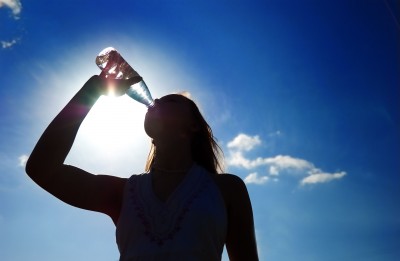 Saliva is an important agent in your body system. In Chinese medicine, there is a belief that changes in the saliva is an indication of a person’s health and well-being. The symptoms of a certain disease state of the body can be determined by the viscosity and the smell of the saliva. According to scientists, many health issues including cholesterol, cancer, heart problems and even difficulties in conceiving can be diagnosed through saliva.
Saliva is an important agent in your body system. In Chinese medicine, there is a belief that changes in the saliva is an indication of a person’s health and well-being. The symptoms of a certain disease state of the body can be determined by the viscosity and the smell of the saliva. According to scientists, many health issues including cholesterol, cancer, heart problems and even difficulties in conceiving can be diagnosed through saliva.
From the dentists’ point of view, it is the quality and quantity of the saliva that matters.
One’s oral health can be affected when there is disruption on the quality and / or quantity of saliva. Some of the effects include:
1. Sjogren Syndrome, which is an auto-immune condition that causes dryness in the mouth and eyes. Dry mouth, also known as Xerostomia, is a condition associated with reduced or absence of saliva flow.
2. More caries since the extent which teeth remineralise (restoration of the mineral content of the teeth) is slower due to the absence and / or reduced salivary flow (also known as hyposalivation). For instance, one will usually have fewer caries in the lower front part of the mouth where the teeth are more exposed to saliva.
3. The inability to masticate (chew), taste and swallow food. Saliva acts as a lubricant to allow one to chew and swallow food.
4. Lack of ability to fight germs in the mouth, thus promoting bad breath.
5. Insufficient proteins and minerals to protect the tooth enamel, resulting in decays and gum diseases.
There are ways to stimulate salivating or prevent the decrease of saliva flow:
1. Consumption of food that helps to protect against tooth decay. For instance, hard cheese (also known as grating cheese) can help increase saliva flow. In fact, completing your meal with a piece of cheese can help to counter acids produced from other foods eaten at the same meal.
2. Choose crunchy, fibrous fruits and vegetables such as apples, carrots and celery. Not only do they promote salivating, they also help to sweep bacteria and plaque off teeth.
3. Chew on sugar-free gum or candy – the chewing action stimulates salivary glands to produce saliva.
4. Avoid overconsumption of alcoholic drinks and use of alcohol-based mouth rinses as they tend to dry out the mouth.
5. Drink more fluids to keep the mouth moist.
6. Avoid eating after brushing your teeth before bed time as salivary flow decreases when we sleep.
7. Reduce or cease smoking, as it promotes dryness in the mouth.
Whether there is excessive production of saliva (hypersalivation) or reduced salivary flow (hyposalivation), your wisest choice is to see a dentist to determine the cause of the condition to find out if it is temporary, or due to an underlying medical condition.
Early detection is better than cure, begin your journey to dental wellbeing and see your dentist today!
Please subscribe to our blog for more interesting dental related topics or ‘Like’ our Facebook page for the latest updates on our team activities.





